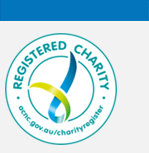Abstract
Evidence-based guidelines for the management of surgical smoke and bioaerosols for perioperative nurses are necessary to improve the quality of care for patients and to ensure a safe environment in operating rooms. A survey of 377 operating room (OR) nurses throughout Thailand was used to assess the incidence of health problems related to surgical smoke exposure, as well as the current practices for these substances. A high percentage of OR nurses reported little or no use of smoke evacuation tools such as central smoke evacuation systems (100 per cent), portable smoke evacuation units (82 per cent), wall suction with inline filters (56.5 per cent) or laparoscopic evacuation/filtration systems (63.7 per cent) during surgery. Most of the perioperative nurses suffered from headaches and/or sore throats. Due to the wide range of deleterious health issues that arise from exposure to surgical smoke, it is critical that perioperative nurses closely adhere to best practice guidelines for minimising this environmental hazard.
Recommended Citation
Asdornwised, Usavadee; Pipatkulchai, Daranee; Damnin, Suwat; Chinswangwatanakul, Vitoon; Boonsripitayanon, Mongkol; and Tonklai, Sununtha
(2018)
"Recommended practices for the management of surgical smoke and bio-aerosols for perioperative nurses in Thailand,"
Journal of Perioperative Nursing: Vol. 31
:
Iss.
1
, Article 3.
Available at: https://doi.org/10.26550/2209-1092.1022
Creative Commons License

This work is licensed under a Creative Commons Attribution 4.0 License.
Included in
Health Services Administration Commons, Health Services Research Commons, Perioperative, Operating Room and Surgical Nursing Commons, Surgery Commons


